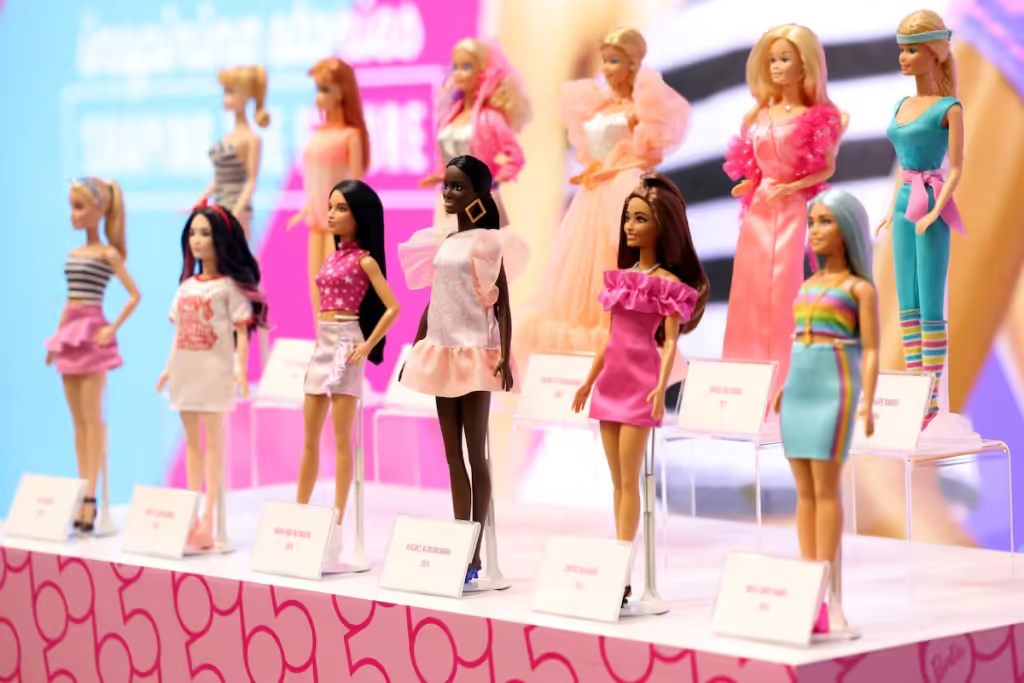PLASTIC, FANTASTIC … AND POTENTIALLY LITIGIOUS: AI BARBIE GOES FROM DOLLHOUSE TO COURTROOM.

“May 07, 2025 – You may have seen the viral “AI Barbie” phenomenon where users create AI-generated images, videos, and avatars inspired by Barbie’s signature look — think pink aesthetic, makeup, glamorous outfits and accessories, and a plastic-fantastic vibe. To participate, people upload photos of themselves using AI tools or apps such as their LinkedIn headshot and TikTok filters. They then prompt the AI tool with what they want it to generate, including the items the person wants to appear with their doll, such as clothing and accessories, job, type of packaging to use, and anything else they can think of. The AI tool then transforms the user into a “Barbie-fied” doll version of themselves, often accompanied by humorous or aspirational captions like “this Barbie is a Privacy Lawyer,” and with the requested clothing and accessories, such as a suit, laptop, copy of the EU AI Act. The mashup of AI and Barbiecore has spread like wildfire across social media platforms. However, beneath the surface of this frothy pink trend lies a complex web of legal questions spanning data privacy, copyright, AI governance, energy, and more. As lawyers, regulators, and rights-holders scramble to keep up with the rise of generative AI and influencer-driven trends, the AI Barbie phenomenon offers a case study of what happens when pop culture, technology, and the law collide. Copyright: Who owns AI Barbie content? Mattel, Inc. owns Barbie intellectual property, which includes trademarks, copyrights, and design patents covering everything from the name “Barbie,” the handwritten and whimsical bright pink logo (Pantone 219C to be specific), Barbie’s likeness, and even Barbie’s clothes, accessories, style, design, packaging, and storyline, all of which are protected by copyright and design patents.As the copyright covers Barbie’s likeness, images and videos that adopt her likeness in derivative works can infringe on Mattel’s rights. This can include derivative works generated by AI tools that resemble Barbie’s appearance or use her name. It could raise serious copyright infringement issues if that work is used commercially, e.g., influencers in an AI Barbie-branded social media post for ad revenue or businesses selling AI Barbie avatars.Before jumping on the AI Barbie trend, it is important to understand how the AI tools operate, what data they use, and what disclosures are necessary. This level of transparency and compliance is not just a recommendation but is required in many instances.The Federal Trade Commission’s (FTC) Endorsement Guidelines are clear that influencers who promote Barbie-themed content (including AI-generated Barbie selfies) must disclose when they:Receive compensation or free use of a paid application.Use affiliate links or codes.Use content that may mislead consumers into thinking it is authorized by a copyright holder, i.e., Mattel.Failure to do so may be considered deceptive marketing and lead to enforcement actions.There are also licensing issues. Unless the AI tool provider has a license from Mattel, any commercial use of Barbie-like images, audio or name may constitute trademark infringement or false endorsement, particularly if it confuses consumers about whether the content is affiliated with Barbie or Mattel.”
Information take from Reuters https://www.reuters.com/legal/legalindustry/plastic-fantastic-potentially-litigious-ai-barbie-goes-dollhouse-courtroom-2025-05-07/
#barbie #intellectualproperty #brands #trademark